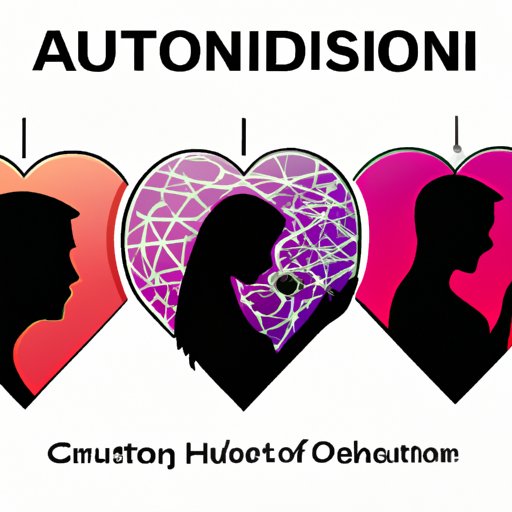
I. Introduction
Love is an essential component of any healthy relationship, providing a foundation of support, trust, and intimacy. However, addiction can pose a significant barrier to experiencing and expressing love in a relationship. Addiction is a complex disease that changes the brain’s chemistry, making it challenging for an addict to connect with others emotionally. This article explores the ways in which addiction can impede one’s ability to love and form positive relationships, drawing on scientific research and real-world examples.
II. Addiction and the Brain
Addiction affects the brain’s reward system by releasing chemicals like dopamine, leading to a cycle of craving and gratification. However, this heightened pleasure response can interfere with an addict’s ability to experience other emotions, including love. Studies have shown that addiction can cause structural changes in the brain, leading to impaired cognitive function, poor decision-making, and emotional dysregulation. These changes can make it challenging for an addict to empathize with others, recognize their own emotions, or express love towards their partner.
III. Consequences of Addiction
When left unchecked, addiction can cause a host of negative consequences in an individual’s life, including legal troubles, financial instability, and health problems. These issues can put a significant strain on a relationship, causing emotional distance and eroding trust. An addict’s partner may also become an enabler, unwittingly enabling their addiction by covering for them or providing financial support, further exacerbating the negative effects on the relationship.
IV. Attachment Styles and Addiction
Attachment theory posits that individuals develop different attachment styles based on their early experiences with caregivers. These attachment styles can impact an individual’s ability to form secure, healthy relationships later in life. For example, individuals with an avoidant attachment style may struggle with emotional vulnerability and intimacy, making it easier to turn to drugs or alcohol as a way of avoiding deeper connections with others. Addiction can also make it difficult to form healthy relationships by altering an individual’s sense of self-worth and capacity for trust.
V. Addiction’s Impact on Personal Life
For an addict, managing their addiction can consume their entire life, leaving little room for other responsibilities or relationships. Addiction can manifest in many ways, from neglecting one’s partner and family to prioritizing substance use over work or other obligations. An addict’s inability to manage their addiction can lead to feelings of shame and frustration, further eroding their emotional capacity to connect with loved ones. This can cause significant tension in a relationship and make it challenging for an addict to form positive connections with others.
VI. Supporting a Loved One with Addiction
If your partner is struggling with addiction, it can be upsetting and even frustrating to watch them suffer. However, it’s important to approach this sensitive issue with compassion, empathy, and an understanding of the complexities of addiction. Setting clear boundaries, seeking outside resources like counseling or support groups, and practicing self-care are all essential tactics for supporting a partner with addiction. However, it’s also essential to maintain empathy, recognizing that addiction is a disease that requires ongoing treatment and support.
VII. Conclusion
While addiction can cause significant damage to relationships, it’s important to remember that recovery is possible with the right support and treatment. Understanding the ways in which addiction can impede love and connection can help individuals take a proactive approach to managing their relationships and supporting their partners through recovery. With patience, compassion, and an understanding of the disease, it’s possible to stay committed to your partner while also prioritizing your own needs and well-being.





